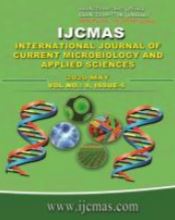


 National Academy of Agricultural Sciences (NAAS)
National Academy of Agricultural Sciences (NAAS)

|
PRINT ISSN : 2319-7692
Online ISSN : 2319-7706 Issues : 12 per year Publisher : Excellent Publishers Email : editorijcmas@gmail.com / submit@ijcmas.com Editor-in-chief: Dr.M.Prakash Index Copernicus ICV 2018: 95.39 NAAS RATING 2020: 5.38 |
Food safety is a growing public health concern of both in the developing, and developed nations. The consumption of chemically preserved foods raises the concern among the consumer for naturally produced antimicrobial agents. Therefore, in the present study an attempt has been made for the preparation of apricot RTS and apricot plum with bacteriocin Lactobacillus brevis SM6 (crude and purified) and was compared with standard chemical preservative (sodium benzoate) to evaluate the effect of bio-preservation in the food. Bacteriocin was added in the food products following direct and indirect approach. The effect of preservatives in the prepared food products was studied and found that bacteriocin of Lactobacillus brevis SM6 was at par with chemical preservative in preserving apricot RTS and apricot pulp efficiently by preventing the growth of spoilage causing pathogens. The effect of bacteriocin was also compared statistically with chemical preservative to prove its efficacy for biopreservation.
 |
 |
 |
 |
 |